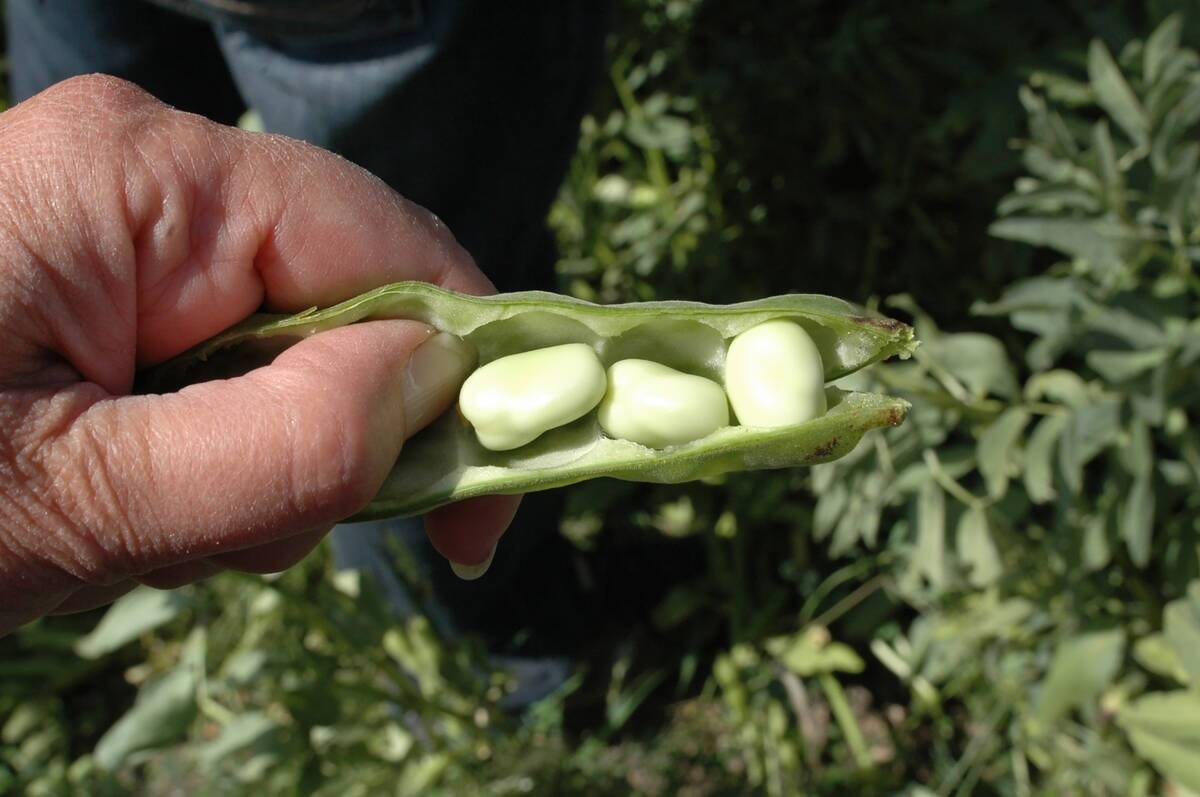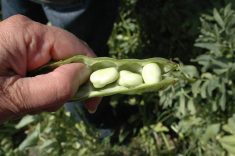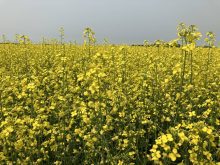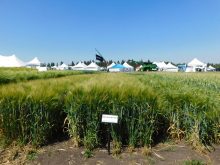Seed growers are relieved the Canadian Food Inspection Agency (CFIA) now wants to consult about its role in certifying pedigreed seed after declaring it was dropping field inspections in five years.
“Whether it’s sober second thought on CFIA’s part or our press release, the message coming out of CFIA is a message we can live with,” a much relieved Dale Adolphe, executive director of the Canadian Seed Growers Association (CSGA), said in an interview July 20.
“I would say it basically fits with the type of relationship we’ve had with CFIA for the 10 years I’ve been around – we’re co-operative, we work together, we try to find solutions.”
Read Also

New crop insurer policy enables easier startup for faba beans
Agriculture Financial Services Corporation updated its normals for faba beans, which may open the door for more Canadian producers to feel comfortable growing the pulse crop in the future.
Last month Michael Scheffel, national manager of CFIA’s seed section, told the CSGA and Canadian Seed Trade Association (CSTA ) that CFIA field inspections of pedigreed seed crops would be transferred to the industry within five years.
The CSGA condemned the decision in a news release July 14. Adolphe discussed CSGA’s concerns with Scheffel the next day. In an email to Adolphe July 19, Scheffel said CFIA wants to consult before any changes.
Scheffel confirmed that in an interview July 20.
“The clear message now must be that there will be no changes to the programs and services until we’ve got mutually agreeable solutions,” Scheffel said. “We want to work co-operatively with the industry.”
The CSGA, CSTA and Canadian Seed Institute are members of the consultative group.
Adolphe thinks cost-cutting was at the root of CFIA’s earlier announcement. CFIA spends $1.64 million a year inspecting 1.1 million acres of pedigreed seed and collects around $1.2 million in user fees, resulting in an annual shortfall of $428,000.
Partnerships
Scheffel said the agency is being asked to do more, so it’s looking at ways to be more efficient and effective.
“If that means we can partner with our stakeholders to effect change that is beneficial to all parties that’s certainly areas we are definitely going to explore,” he said.
Some of that already happens. For example, a seed laboratory in Alberta certifies hybrid canola produced there, while private seed companies in Ontario certify their own hybrid corn. In both cases CFIA does audits to ensure regulations are met.
It has the CSGA’s blessing and it’s not opposed to applying the same model to other crops where it makes sense, Adolphe said.
“We’re not resistant to change but we want change when it makes sense and it makes the system more efficient and effective, not change because governments have decided they’re cutting resources,” he said. “And that was kind of the message we were getting previously.”
Scheffel said the same system used on hybrid corn could work for soybeans, especially with companies that already produce.
While some people are suspicious of companies inspecting their own crops, Scheffel said market forces keep them honest.
“It’s such a competitive marketplace they cannot afford to cut corners on crop inspection,” he said. “They have brands that are way more valuable than any specific lot of seed. They have very discerning customers. It is in their own interest to do an excellent job during their crop inspection.”
Third-party inspection works for pedigreed hybrid canola and corn production, but that doesn’t mean it’s necessarily right for all crops, Scheffel said.
And no matter what options might be contemplated, CFIA has no plans to drop its oversight of pedigreed seed production, Scheffel said.
“It was always understood that the Canadian Food Inspection Agency official tag would continue to be the mark of conformity that would be applied to certified seed in the marketplace and that CFIA would ultimately be responsible for that,” he said.
“I don’t think it was ever realistic to assume CFIA would be completely out of crop inspection in the future, especially when it comes to the high-generation seed – select and foundation seed.
Select seed is the next generation from breeder seed and foundation is the next after select. Foundation is followed by registered seed and then certified, which is sold to farmers for commercial production.
———
“Whether it’s sober second thought on CFIA’s part or our press release, the messaging coming out of CFIA is messaging we can live with”
DALE ADOLPHE














